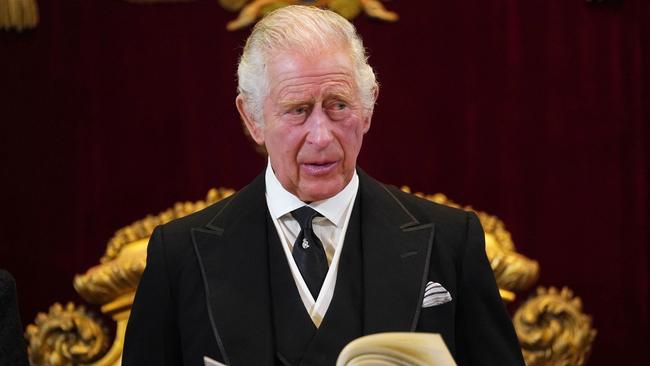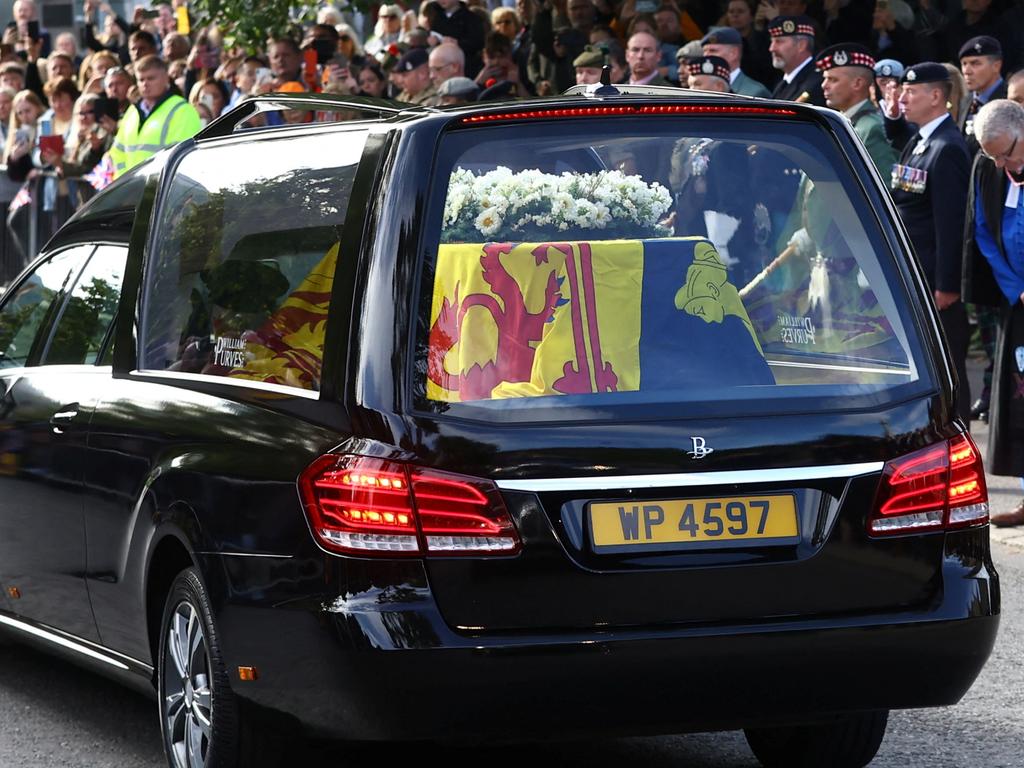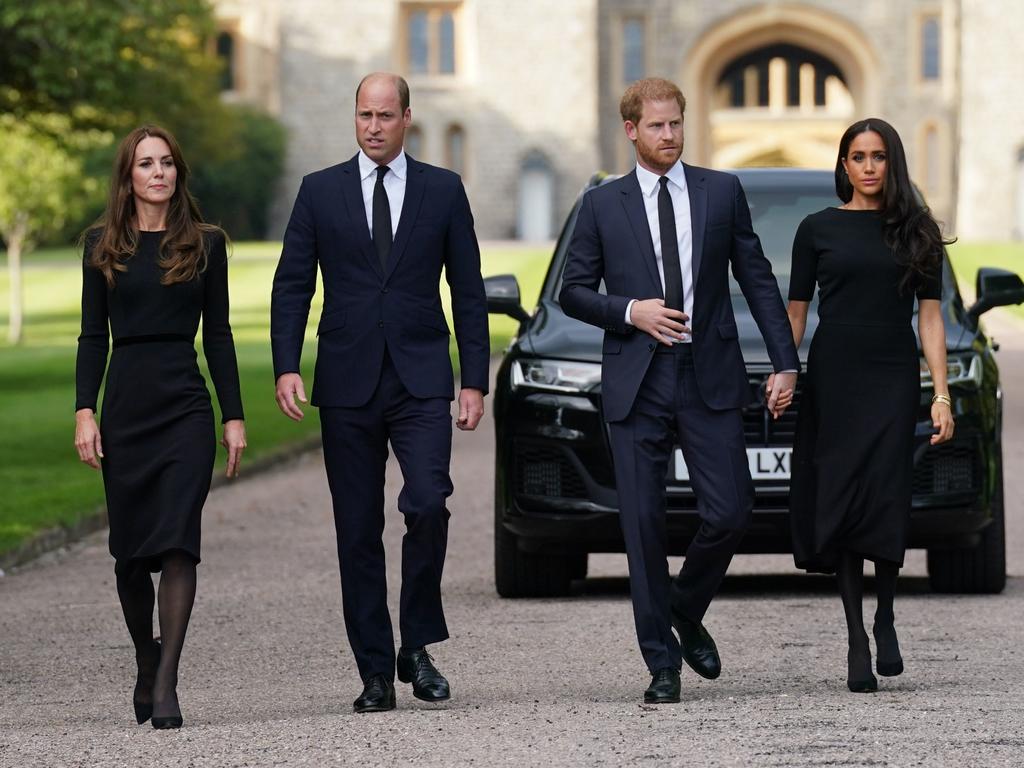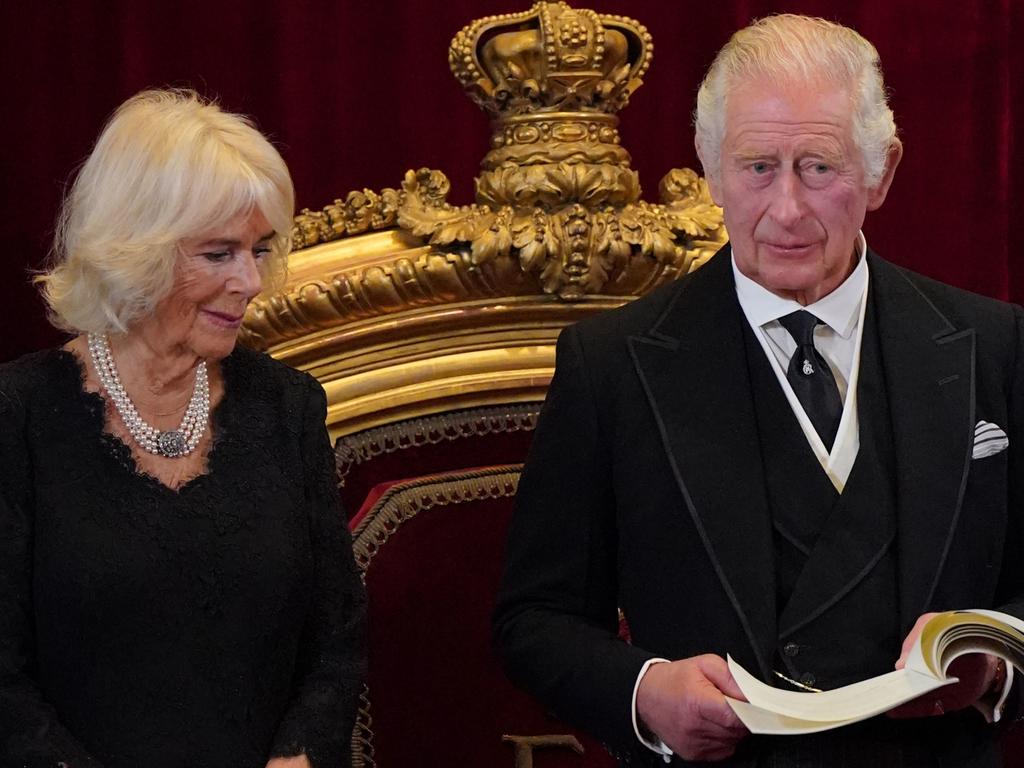
The decisive pledge the new King made in his historic inaugural speech was to renew in his life the Queen’s pledge of her lifetime of service.
In speaking for the first time as King, this was a different Charles. His first promise “throughout the remaining time God grants me” is to uphold the constitutional principles at the nation’s heart. The second promise for people wherever they live – in the United Kingdom or the realms – is that of service. His promise is to serve with “loyalty, respect and love”.
Charles will bring his own brand to the monarchy. It is unrealistic to think he could match the iconic standing and popularity of his mother, but as her son, as the best-prepared monarch in history, as the prince who absorbed every nuance integral to monarchical success, Charles may surprise on the upside.
His first historic address as sovereign was moving and uplifting. Charles spoke in a dual capacity – as a son and as a king.
As a son, he mourned for his mother – yet acknowledged his grief was tempered by gratitude.
As a king, he invoked the ethic of service and dedication that marked her astonishing 70 years as queen.
It was that Australian republican Paul Keating who captured what monarchy is at its best, saying of the Queen that she “attached herself to the public good against what she recognised as a tidal wave of private interest”, with her legacy being “a lifelong mission” to pursue what is “enduringly good and right”.
The monarchy, by definition, is undemocratic. Its justification resides in the idea of service, an ethic the Queen took to its zenith and an example Charles now seeks to follow. In his speech, Charles highlighted the endurance of monarchy: the Queen is dead, Charles is King, his son William becomes Prince of Wales and heir to the throne.
The next half-century is laid out on the historical landscape. Death begets life. In paying tribute to his mother, the King discerned the subtlety of her reign – her “abiding love of tradition” together with her “fearless embrace of progress”. Elizabeth II survived and prospered across 70 years that transformed Britain.
The Queen, unlike the political class, was always understated. The more the public was repelled by the shouting spite of elected politicians, the more monarchical impartiality and being “above the fray” appealed.
It was part deception – the grace of the Queen became an antidote to the ungracious behaviour of many royals.
Charles, like his mother, will have no hard power. That is the nature of constitutional monarchy and it becomes his great asset. He cannot be accused of failed and damaged policies, but he will have immense influence by example and behaviour, and he will be closely scrutinised.
How will Charles exert that influence? That will be revealed over time. But beware those who think his public campaigns for climate change, the environment, cities and architecture, among other causes, will continue as before. That is surely improbable.
The constitutional weight of responsibility, impartiality and unity as sovereign will impose fresh limits on his discretion. This is one of the towering lessons from Elizabeth’s reign. The new King will be ever-present, highly visible, and keen to reach out to the people. He is deeply aware of the need for monarchical popularity, a task at which his mother excelled.
The dramas of his own personal life have taught Charles that public consent is now the foundation stone of the crown. If that is extinguished, the crown is imperilled. His task, therefore, is to build new threads of public support for a new regent.
Charles will enjoy an initial surge of emotional support, but the romantic image of the Queen will fade over time, surrendering to new, probably more critical attitudes, towards the monarchy.
Britain stands at an uncertain historical point – struggling in the Brexit age with doubts about how long the United Kingdom will hold together. Charles may be king at a time of growing instability.
Pivotal to his success will be the saga of his sons, William and Harry, their wives and how the tension between them plays out.
The divisions between the Sussexes and the rest of the royal family will not be healed.
Indeed, they might point to something bigger – a symbol of the friction between inherited monarchy and wider woke culture.
Finally, the Queen’s death will remove much of the protective political armour that has shielded the monarchy from more searching questions about its accountability, its finances, its assets and the discharge of its responsibilities in a democracy likely to demand even more accountability.
Charles has won the crown at an advanced stage of his life – yet the pressures upon him will intensify dramatically.








The Elizabethan age has surrendered to King Charles. Constitutional monarchy is a cycle of death and life. Every death offers a new beginning.